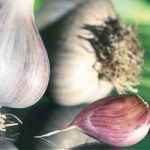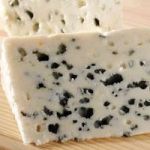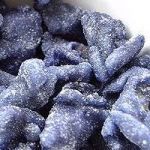 |
Flavors of the Midi-Pyrénées Region > Haute-Garonne

It is often said in France in general that all that pork products are good to eat, whereas in Midi-Pyrenees in particular anything to do with le canard (duck) is considered excellent fare. For example fresh foie gras, fritons (small pieces of duck meat and skin browned and conserved in duck fat), magrets grillés (duck breast), confits raffinés (conserved duck leg) or gésiers (gizzards) served warm with a salad of Ail Violet de Cadours (violet garlic from Cadours). Duck is an emblematic
ingredient in the Southwest where its high quality is guaranteed and where only the best and most authentic is acceptable. Restaurants in Toulouse derive constant inspiration for a variety of dishes based on the range of products which come from the duck. Likewise, Cadours violet garlic is produced to the same standard of excellence, and the fresh, fragrant crop is available from July.

To ensure an exemplary cassoulet toulousain, some 4 to 6 hours of preparation are necessary. The Haricot Tarbais or the Lauragais Coco are the main ingredient, small white beans which are added to an aromatic meltdown of confit d’oie (conserved goose leg), jarret de porc (knuckle of pork),
saucisse de couenne (sausage of pork meat and rind), herbs, garlic and nutmeg. This has to simmer for a long time before cooking in the oven for several hours. Well browned, the cassoulet is served hot in its earthenware pot. Full of energy-giving calories, in times gone by the cassoulet was the staple food in the countryside of the Midi Toulousain. It originates from the colourful heart of the Lauragais, between Toulouse and Castelnaudary. The farmers’ wives of this region, who went into service in the houses of the great Toulousain merchants in the 16th century, introduced the recipe for cassoulet to the Place du Capitole.

A parade of right royal cheeses will revive even the most flagging appetite at the end of a meal. The king is the Roquefort AOC; the nobles are the Bleu des Causses AOC and the Laguiole AOC directly from the summer pastures of the Aubrac; the princess is the Tomme des Pyrénées, and the little prince is, without doubt, the Cabécou AOC Rocamadour.

This wine-producing area between Toulouse and Montauban owes its uniqueness to the Négrette, a grape variety exclusive to the locality. With a good reputation since the 12th century, AOC since 1975, Fronton is the ideal accompaniment for the specialities of the Midi-Pyrenees. The young reds harmonize well with grilled meat and cheeses from the Pyrenees, while four to seven-year old reds enhance cassoulets and confits with flair

Violets were Napoleon's favorite flower and in the 19th century a thriving violet agriculture began to expand in France, notably in the area around Toulouse where the flower was cultivated since the Middle Ages. The flowers were used of course for their perfume, but they also be used in French cuisine. It was a druggist who popularized the idea of crystallizing violet flowers with sugar to make a candy.

-

 Recipes
Recipes
-

 Products
Products
-

 Entertaining
Entertaining
-

 Chefs
Chefs
-

 Hints & Tips
Hints & Tips
-

 Glossaries
Glossaries








